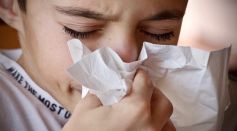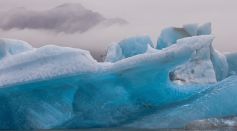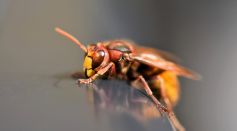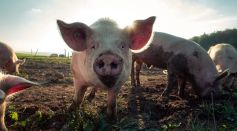Tags: Environment

Mass Extinction Event That Could Wipe Out Humans, Mammals Predicted to Happen When Continents Combine Together

34-Million-Year-Old Lost Antarctic River Discovered by Scientists, Offering Rare Picture of Continent's Land
Mysterious Seahenge From Bronze Age Possibly Linked to Climate, Environment and Regional Folklore [Study]
Tiger Beetles Mimic Toxic Moths With High-Pitched Sounds To Evade Predator Bats
Flexible Great White Sharks Adapt Behavior Based on Different Hunting Scenarios
Urbanization Is Driving Moths Away; ‘Strong Pattern’ of Insect Decline Observed [Study]
What Is Acid Rain? How Does It Affect Humans and the Environment?
Homeostasis Explained: Here's How the Body Maintains Balance
Measuring Sustainability: How Many Times Should You Use Reusable Items To Offset Their Carbon Footprint?
Environmental Campaigners Warn French President Over Frog Legs Delicacy's Impact on Species Decline
Glitter's Environmental Impact: A Microplastic Menace and Metallic Threat to Aquatic Plants

Christmas Toys: How Can Parents Balance Childhood Joy With Environmental Responsibility in the Face of Consumer-Driven Desire and Plastic Waste?

Are Paper Tissues Better Than Handkerchiefs? An Analysis of Infection Prevention and Environmental Impact

Glaciers Are Shrinking and Disappearing, New Inventory Reveals; How Does This Affect the Environment?

What Do Wasps Do for the Environment? Unveiling the Unsung Heroes Essential to Nature

Paper Straws Are Not More Sustainable, Eco-Friendly Than Plastic; Here’s Why
Great Pacific Garbage Patch: Thriving Ecosystem Emerges Amidst Massive Marine Debris Concentration, Raising Concerns

Octopus' Unconventional Superpower: RNA Editing for Environmental Adaptation in Cephalopods

Is Pig Fat Used as Jet Fuel Good for the Environment? New Research Warns It Might Cause More Harm Than Good

Underestimation of One Damaging Chemical Released to the Environment Results in the Slow Repair of the Ozone Layer
Most Popular

Will Earth's Magnetic Poles Flip Next? Magnetic Pole Reversal Explained Through Cutting‑Edge Magnetosphere Science

How Lightning Science Reveals Why Charged Storms Are Rising with Global Warming Effects

Relativity Time Dilation Explained: The Physics of Time and Why It Moves Differently in Space

Earthquake Magnitude vs Intensity: Key Differences Explained for Accurate Measurement





